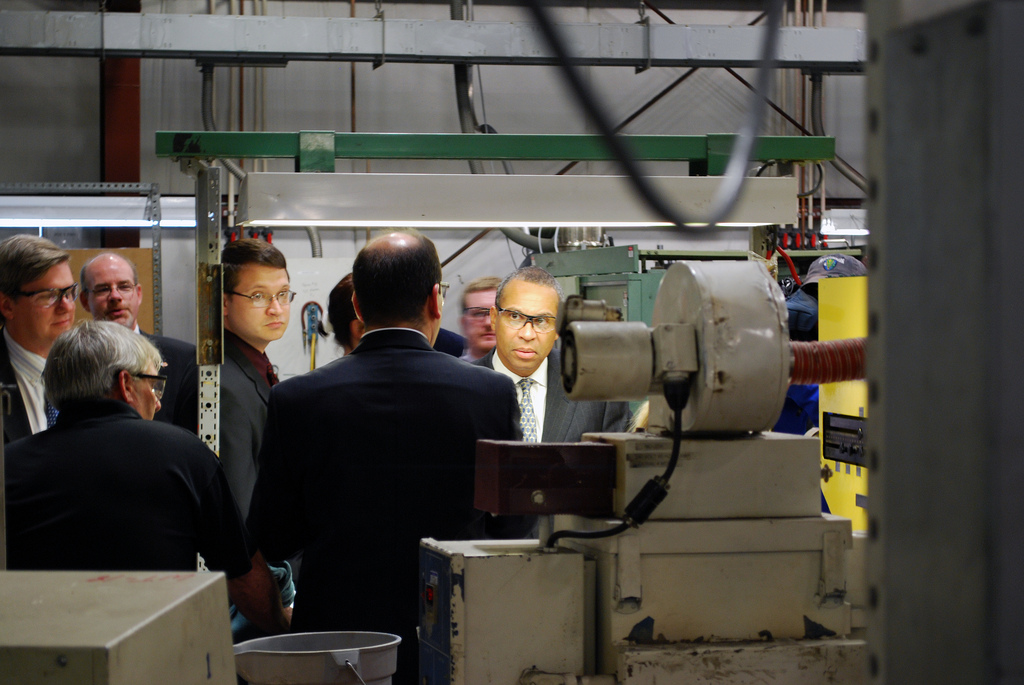 Recently, a growing number of cities and states have begun pursuing strategies that attract and welcome immigrants and immigrant entrepreneurs in order to grow their economies. Encouraging immigrant high-tech entrepreneurship, and addressing the factors that cultivate an environment in which entrepreneurs may be more successful, is yet another avenue for growth cities may wish to consider. Yet, while many studies have focused on the high-tech contributions of immigrants and immigrant entrepreneurs in Silicon Valley, relatively few studies have explored those contributions in other regions. Last week, the Kauffman Foundation released a new study—Lessons for U.S. Metro Areas: Characteristics and Clustering of High-Tech Immigrant Entrepreneurs—that addresses the dearth of geographic diversity in research about high-tech immigrant entrepreneurs.
Recently, a growing number of cities and states have begun pursuing strategies that attract and welcome immigrants and immigrant entrepreneurs in order to grow their economies. Encouraging immigrant high-tech entrepreneurship, and addressing the factors that cultivate an environment in which entrepreneurs may be more successful, is yet another avenue for growth cities may wish to consider. Yet, while many studies have focused on the high-tech contributions of immigrants and immigrant entrepreneurs in Silicon Valley, relatively few studies have explored those contributions in other regions. Last week, the Kauffman Foundation released a new study—Lessons for U.S. Metro Areas: Characteristics and Clustering of High-Tech Immigrant Entrepreneurs—that addresses the dearth of geographic diversity in research about high-tech immigrant entrepreneurs.
Specifically, the report emphasizes the importance of “open and culturally diverse” environments in fostering high-tech entrepreneurship in metropolitan areas. This is true for both immigrants and the U.S.-born. However, the study found that “higher ethnic diversity and a larger share of the foreign-born population are crucial factors in attracting or fostering immigrant high-tech entrepreneurship on the metropolitan level.” In particular, the report examines geographic factors that intersect with metro concentration of high-skill immigrant entrepreneurs. As the study notes, “immigrant-owned businesses are more likely to locate in ethnically diverse metro areas that have high foreign-born populations. That’s important for metro areas hoping to attract and retain this fast-growing pool of high-impact founders.” Dane Stangler, vice president of Research and Policy at the Kauffman Foundation, stated, “Because immigrants are far more likely to start businesses—particularly high-tech companies—than the native-born, their importance in the U.S. economy is increasing.” The study’s findings include the following:
- “Compared to their U.S.-born counterparts, who are more evenly distributed across all the high-tech sectors, immigrant owned high-tech businesses are more concentrated in a limited number of industries, such as semiconductor, other electronic component, magnetic, and optical media, communications, audio/video equipment, and computer science-related sectors.”
- “Spatially, immigrant high-tech entrepreneurs are concentrated in a smaller number of metropolitan areas, with 80 percent of them concentrated in the largest twenty-five metropolitan areas, in contrast to 57 percent of their U.S.-born counterparts.” Although three metro areas—New York, Los Angeles, and San Francisco—account for around one-third of all immigrant high-tech entrepreneurs overall, several other metro areas registered substantial growth over the last decade of high-tech immigrant entrepreneurs, including Atlanta, Chicago, Fort Lauderdale, Houston, Miami, Riverside, and Washington, D.C. Growth of high-tech immigrant entrepreneurs over the last decade in the Silicon Valley metros of San Jose and San Francisco was not substantial.
- “Both immigrant and U.S.-born high-tech businesses are more likely to locate within regional labor markets that have an overall higher percentage of high-tech industries and higher innovation capacity.”
- “Unlike the U.S.-born, however, higher ethnic diversity and a larger share of the foreign-born population are crucial factors in attracting or fostering immigrant high-tech entrepreneurship on the metropolitan level.”
Such findings, the report notes, “imply that an open and culturally diverse environment is positively associated with creative and innovative activities for both immigrants and the U.S.-born.” Amid the growing trend of cities and metropolitan regions exploring ways to grow their economies, many of which include immigrant integration and welcoming strategies as a component of economic development, this study of U.S. metro areas with the most high-tech immigrant entrepreneurs offers lessons for other regions.
Beyond high-tech entrepreneurs, however, other new research explores how immigrant entrepreneurs bolster the U.S. economy more broadly. A new report from the Partnership for a New American Economy highlights data showing that the number of Hispanic entrepreneurs in America has grown exponentially over the past two decades, helping to power the economy during the recent recession. Local leaders looking for ways to boost their economies through attracting immigrant entrepreneurs should also consider nurturing those factors in their metro region that are conducive to encouraging a robust immigrant entrepreneurial sector.
Photo by Josh Speers.
FILED UNDER: Business, Entrepreneurship, featured, Kauffman Foundation, technology industry immigration


